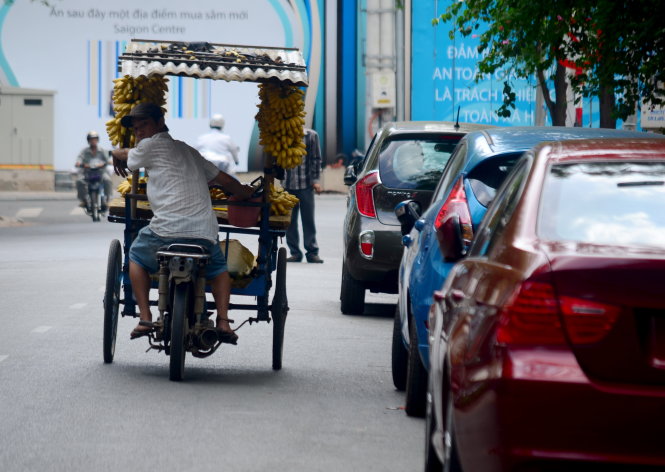Editor's note: Le Minh Tien dreams of an equalized Vietnam with little corruption and a small rich and poor gap in the next 20 years, as he wrote to the “Ky Vong Viet Nam 20 Nam Toi” (“My Expectations for Vietnam in 20 Years”) writing contest.
I have high expectations for Vietnam in the 20 years to come. One of them is that Vietnam will boast social inequality which is as low as in North European countries.
Vietnam would turn into a country worth living in over the next 20 years, priding itself on low corruption indexes and shortened income and opportunity inequality.
After 30 years of reform, our country has made substantial headway in various areas. Economically speaking, personal incomes have generally been improved.
However, the improvement in personal incomes has entailed social inequality, which is manifest in diametrically different income levels. Opportunity inequality is also on the rise.
Widening rich-poor gaps
The Gini coefficient – a commonly used measure of inequality – among different Vietnamese groups of income earners has tended to increase in recent years. It is inching up to 1.00, which means an absolute inequality in incomes.
The coefficient escalated from 0.36 in 1996 to 0.39 in 1999, and continued to surge to 0.42 in 2002 and 0.446 in 2010. The Gini coefficient is thought to represent an alarming situation when it reaches above 0.4. The figure typically stands below 0.3 in North European countries.
In 2002, the income difference coefficient per person each month between Group 1 (20 percent of the lowest income earners) and Group 5 (20 percent of the top earners) was 8.1. The figure inched up to 8.3 in 2006, but rocketed to 9.2 in 2010.
In other words, our country has been a marked economic achiever who sees increasingly widening disparity between the rich and the poor. This means the distribution of ‘fruits’ obtained from economic growth is not equal, as some groups benefit more than the others.
Apart from income inequity, we’ve also witnessed inequality regarding opportunities, as most policies on education, health care and housing are seemingly designed on the basis of locals’ spending power.
Groups with low income, or low spending power, will have limited opportunities for access to basic services including education, medical care and housing.
If people are denied opportunities for a decent education due to low spending power, they will continue to languish and lag behind in different areas as they do not have enough knowledge and skills to earn higher incomes.
Four integral solutions
Building an equalized society is not an easy, overnight task as it requires tremendous efforts with decisive policies. Nevertheless, with the government’s resolve and everyone’s effort, bridging social inequality gaps would not be out of reach. Below are some of my suggested solutions:
First, a minimum salary raise should be considered. Over the past few years, our cheap labor pool has been one of our competitive edges. The strategy is acceptable in the initial phase of economic development, but we are supposed to raise the minimum salaries in the next 20 years.
To earn higher minimum salaries, workers must improve work performance, which requires immediate attention to education and vocational training.
Secondly, we should design our income tax system efficiently so that tax collection is applied adequately to the opulent and extremely rich class. We all know that income tax is one of the state’s major budget sources to implement policies on social welfare and bring about social equality.
However, the income tax policies adopted in past years have led to the collection of insubstantial tariff from the rich or super-rich classes. Regulations should be promulgated to minimize transactions in cash, while surveillance of the proceedings must also be ensured.
Thirdly, the government should invest in education. We accept that the private education system is based on learners’ spending power. Regarding the state-owned education system, however, the government should make sound investments to ensure everyone has access to schooling opportunities. To make it clearer, state-owned schools are supposed to be entirely free or charge nominal fees.
“Commercializing” public schools, or offering high-quality, exorbitant programs, should also be stopped, as this is mostly responsible for inequality between social groups.
Lastly, an integral solution which is quite hard to adopt but is required for an equalized society is putting a curb on corruption and wastefulness.
A survey by the International Monetary Fund has highlighted the considerable impact that corruption exerts on social inequity. Specifically speaking, higher corruption indices will lead to an accordingly higher Gini coefficient.
| “Ky Vong Viet Nam 20 Nam Toi” is a competition organized by the World Bank in Vietnam and Tuoi Tre (Youth) newspaper that encourages local youths to write down their wildest, yet feasible, dreams about how Vietnam will change in 20 years’ time. |






















































